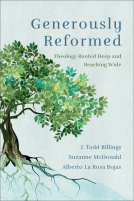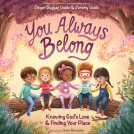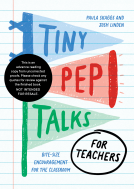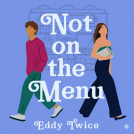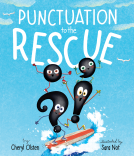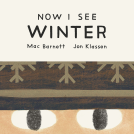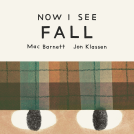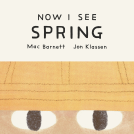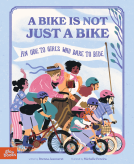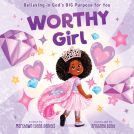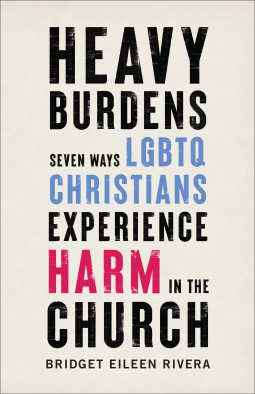
Heavy Burdens
Seven Ways LGBTQ Christians Experience Harm in the Church
by Bridget Eileen Rivera
This title was previously available on NetGalley and is now archived.
Send NetGalley books directly to your Kindle or Kindle app
1
To read on a Kindle or Kindle app, please add kindle@netgalley.com as an approved email address to receive files in your Amazon account. Click here for step-by-step instructions.
2
Also find your Kindle email address within your Amazon account, and enter it here.
Pub Date 26 Oct 2021 | Archive Date 5 Nov 2021
Baker Academic & Brazos Press | Brazos Press
Talking about this book? Use #HeavyBurdens #NetGalley. More hashtag tips!
Description
Religious faith reduces the risk of suicide for virtually every American demographic except one: LGBTQ people. Generations of LGBTQ people have been alienated or condemned by Christian communities. It's past time that Christians confronted the ongoing and devastating effects of this legacy.
Many LGBTQ people face overwhelming challenges in navigating faith, gender, and sexuality. Christian communities that uphold the traditional sexual ethic often unwittingly make the path more difficult through unexamined attitudes and practices. Drawing on her sociological training and her leadership in the Side B/Revoice conversation, Bridget Eileen Rivera, who founded the popular website Meditations of a Traveling Nun, speaks to the pain of LGBTQ Christians and helps churches develop a better pastoral approach.
Rivera calls to mind Jesus's woe to religious leaders: "They tie up heavy burdens, hard to bear, and lay them on the shoulders of others; but they themselves are unwilling to lift a finger to move them" (Matt. 23:4). Heavy Burdens provides an honest account of seven ways LGBTQ people experience discrimination in the church, helping Christians grapple with hard realities and empowering churches across the theological spectrum to navigate better paths forward.
Advance Praise
“We’ve needed a book like Heavy Burdens for a long time. Bridget Eileen Rivera shares the stories our churches urgently need to hear. She shows us exactly how Christians ourselves have wounded the LGBTQ children of our churches. This is a book that can begin to bind up some of those wounds and guide us, in humble love, to build churches in which the next generation of queer Christians can truly flourish. To use Rivera’s terms, this book will help Christian leaders stop ‘obsessing about the sins’ of gay people, and start ‘obsessing about the grace’ God is pouring out through their lives. And it will help LGBTQ people who have been harmed by Christians realize that they are not alone—not only because others have experienced what they’ve been through but because Jesus has always been by their side, always faithful, always cherishing them.”—Eve Tushnet, author of Gay and Catholic
“Rivera’s dauntless and nuanced voice fills a significant void in the Christian debate over sexual identity. Combining tender storytelling with a keen analytic eye, she deconstructs our current status quo to reveal both its fault lines and its mutability. This book challenged me to think more deeply about the logics that underlie my own convictions—and I have a hunch that, no matter where you fall along the spectrum of belief, these provocative pages will challenge you too.”—Gregory Coles, author of Single, Gay, Christian and No Longer Strangers
“This is an essential book, one I wish we’d had forty years ago, as I believe it would have greatly reduced much unnecessary spiritual and physical destruction. It eloquently and convincingly argues not that we hold any particular theological position on sexuality and gender but rather that we open our hearts to recognize both the humanity of queer people and our need for queer people. It opens doors not to threatening theological changes but to the church’s own history—doors many would rather keep shut because they reveal our hypocrisy and our shallow, nearsighted obsession with sex as well as our slavery to secular norms. Rivera is a clear thinker, a scholarly but accessible writer, and a gentle but firm guide who simultaneously educates, challenges, and cares for her readers. She invites us to imagine a world in which God’s LGBTQ+ children are given the space and the safety they need to ask questions, seek God’s will for their lives, and flourish, no matter where the Spirit and their consciences lead them. What a gift this book is to the body of Christ. I suspect—and I pray that my instincts are good here—that it will be a game changer for the church.”—Kristyn Komarnicki, director of Oriented to Love dialogue program, Christians for Social Action
“In spite of—or just as often because of—my position as a ‘conservative’ on marriage and sexuality, I have seen firsthand the ways the evangelical Christian movement has devastated the faith of many of its own LGBTQ members. Not everyone will agree with every argument in this account of that devastation (I don’t), but every Christian who reads this book will no longer be able to ignore the real harm that has been done in the name of the gospel—or to avoid grappling afresh with the repentance and justice-seeking that the gospel continues to ask of us all.”—Wesley Hill, associate professor of New Testament, Western Theological Seminary, Holland, Michigan; author of Spiritual Friendship: Finding Love in the Church as a Celibate Gay Christian
“Many if not most Christians think that the gospel is something that ‘those other people over there’ need to hear and respond to. In truth though, it’s people of Christian faith who are the ones in most desperate need of hearing the good news of Jesus Christ, and this is nowhere more so the case than in the church’s treatment of LGBTQ persons. Bridget Eileen Rivera’s Heavy Burdens is the gospel the church needs to hear. As such, I don’t just recommend that you read it; I dare you to. Personally, I thank God for her wit and winsomeness, and I pray that we all have the courage to heed the wisdom of her words.”—Kutter Callaway, associate professor of theology and culture, Fuller Theological Seminary
“For too long, what should have been a collective rush to compassion and care for the LGBTQ community instead became a screaming match over theological fine points. Heavy Burdens cuts through the noise so that we can truly see. This manifesto rings out in the key of love, the kind that lives in our actions and disrupts our narratives of judgment, fear, and oppression. Bridget Eileen Rivera is a prophet for the ages, calling us to the clear-eyed way of Jesus and igniting our shared imagination for the lightness of Christ, alive and at work in all of us.”—Shannan Martin, author of The Ministry of Ordinary Places and Falling Free
Available Editions
| EDITION | Other Format |
| ISBN | 9781587434839 |
| PRICE | $21.00 (USD) |
| PAGES | 240 |
Average rating from 18 members
Featured Reviews
 Michelle H, Educator
Michelle H, Educator
An Instagram influencer that I follow recommended this book, and I had to check it out. "Heavy Burdens: Seven Ways LGBTQ Christians Experience Harm in the Church", by Bridget Eilleen Rivera, is a well-written and thought-provoking esposé into the ways churches harm those in the LGBTQ community. While this is an important read, it's obviously not very easy to read. I didn't agree with everything I read in the book, but I do agree that the church needs to do a better job of ministering to those who are struggling with their sexual identity.
Thanks to NetGalley for the ARC. All opinions are my own.
I'm going to be pondering over this book for quite a while. The vast majority of it is well reasoned and convincingly argued. The stories of the devastation caused to LGBTQIA+ people by Christians and the Church are completely heartbreaking. It infuriates me that so many of my fellow Christians are proud of the despicable, inhumane ways they treat queer people. I found Rivera's approach to the book - largely declining to engage in the major debates that church positions on LGBTQIA+ people tend to circle around, but focusing instead on the grievous harm done by traditional conservative teaching and the consequent behaviour - helpful and clarifying.
I am a straight white cis-gendered pastor who holds to Side B/ the traditional sexual ethic. You will probably want to filter my review with that understanding. I am weirdly the target audience for the book and also the audience that might be the least receptive.
The book tries hard to straddle the line between affirming and non-affirming. Rivera is Side B(non-affirming) and is celibate herself. She tries hard to avoid the discussion and several times emphasizes that the book is not about that particular debate. However, by the end of the book she places the entire discussion as a non-essential one. She compares it to baptism as something that believers can disagree about and still follow Jesus. That will be a difficult pill to swallow for many. I'm not convinced on that point, but she makes her argument well.
Most of the book focuses on the seven ways LGBTQ people have been harmed in the church. She lays out the arguments with two chapters each explaining how the church has gone beyond the bounds of Scripture in various ways. It is hard to debate, and shouldn't be, that Christians have been ungodly towards LGBTQ people. This needs to be confronted and repented of. The book does a good job of laying out various ways that this has happened.
Some of the burdens were better explained than others. As the book went on I found myself disagreeing more and more in places. I agree with her overall point, but found myself nitpicking here and there. Most Christians should be able to agree with a lot of these burdens even if they disagree with others.
I find myself conflicted on the book. I am uncomfortable with framing the discussion as a completely non-essential issue. But there is a lot of wisdom to be found here. Those who are non-affirming and not apart of the LGBTQ community may struggle more with the book. But I think it is still worth reading and wrestling with. If nothing else to listen to the perspective of someone who agrees with you largely, but is trying to point out what you got wrong. I imagine those who are more affirming will be really enjoy this book and find it healing.
In the end people should read it. It effectively makes the case that Christians have harmed LGBTQ people even if you disagree with some of the particulars. It is especially strong for a debut in a difficult topic.
Introduction
Burden 1: Sex . . . err . . . Celibacy Is Great!
1. The Protestant Sexual Revolution
2. The New Sexual Order
Burden 2: Sinners Saved by Grace
3. Perverted Identity
4. Freud's Lasting Influence
Burden 3: Folk Devils
5. Political Christianity
6. Hellfire and Judgment
Burden 4: The Bible Is "Clear"
7. Culture and Context
8. Double Standards
Burden 5: "Real" Men, "Good" Ladies
9. Effeminacy
10. Emasculation
Burden 6: Made in the Image of God Sex
11. Gender Essentialism
12. More Than Just Monkeys?
Burden 7: Jesus Saves Damns
13. Vessels of Wrath
14. Grace for Me but Not for Thee
A Better Way
15. Recentering the Gospel
16. Setting Down the Burdens
17. Weights of Glory
I received a copy of this book from Netgalley in exchange for a review.
 Reviewer 566895
Reviewer 566895
Heavy Burdens is both hard to read and very inspirational. I can't even say whether I "agree" with everything Bridget wrote because the goal of her book is not to argue that God supports gay marriage or that the very existence of gay people is a sin. Rather, using both personal anecdotes and objective data, Bridget illustrates how very wrong the Christian church has been in how they treat LGBTQ folks. There must be a better way. Spoiler alert, "hating the sin and loving the sinner" is not it.
My heart ached at the stories of folks who sought fellowship and comfort in the church only to be turned away or driven to suicidal ideations at the hate they encountered. This is not the way of Jesus.
Bridget's mic drop point is 100% how inconsistent the American church is regarding sexual ethics. On the one hand, you have churches unwilling to come down on whether divorce is ok or birth control or any number of other "matters of conscience," yet say without blinking that the Bible is clear on other matters of sexuality that doesn't affect heterosexual relationships, namely how it applies to LGBTQ folks. I was inspired by the stories of gay Christians who pour over Scripture to seek truth in a way most heterosexual Christians would never to address their own questions of sexuality.
I also think Bridget makes a great point about how heterosexual Christians gate-keep the Gospel and act like the grace and love of God cannot extend to those "they" determine to be unforgivable. How very unacceptable.
Anyway, I went into this book pretty much already agreeing with the premise, but I have come away with renewed conviction. I think all Christians, especially those in leadership and ministry, ought to read this book.
Full disclosure, the author Bridget was a college classmate of mine and we have stayed connected over social media in the years after graduation. That definitely affected my review because I think she is just a wonderful and wise human.
Thank you to Netgalley, Brazos, and the author for the eARC in exchange for my review.
This is an important book. It is also heavy and difficult to read at times, especially if you are part of the LGBTQ community and you have experienced religious trauma firsthand. But Rivera does a great job at laying out the facts and statistics that don't lie when it comes to how LGBTQ people have been so badly treated by the church for so long. I certainly don't agree with her about everything. She describes herself as a "side B" celibate, gay, Christian, committed to the "traditional" view of biblical sexual ethics. I firmly landed on "side A', or fully affirming theology when it comes to LGBTQ people and their relationships. But her book isn't really about that debate. Her book is about trying to get non-affirming Christians to treat LGBTQ people as beloved children of God, made in the image of God, and stop putting heavy burdens on their backs that God never wanted them to put there in the first place.
A thoughtful, well-researched book that focuses more on how the church can care for and welcome our LGBTQ brothers and sisters and how we have failed to love them well than the typical culture war framing. Rivera, who is a celibate lesbian, provides convicting words on past failures and new pathways forward to include LGBTQ Christians in the Kingdom work as is their calling.
Readers who liked this book also liked:
Paula Skaggs; Josh Linden
Entertainment & Pop Culture, Nonfiction (Adult), Self-Help
